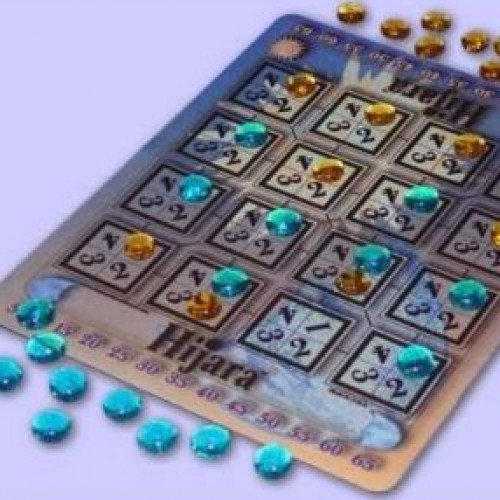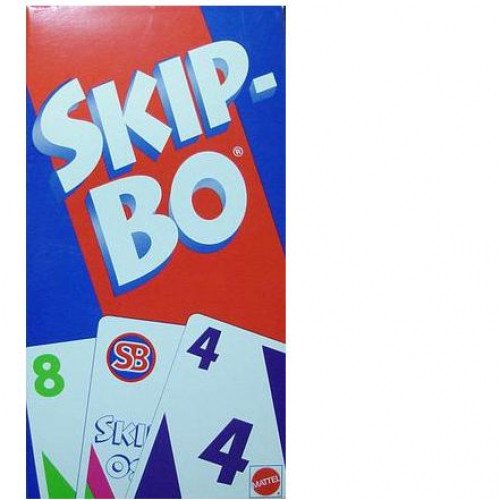HIJARA VS SKIP-BO

HIJARA
Hijara is a two-player abstract strategy board game played with small stones. It has been likened to a three-dimensional game on a two-dimensional board. The game was designed by Martin H. Samue| and first printed, as Excel, by American Airlines in their inflight magazine, American Way, on December 24, 1985 and July 22, 1986. It has been sold commercially as Eclipse in 1994, and Hijara (the Arabic word for small stones) in 1995, 2003 and 2006. The original commercial edition of Hijara has a game board of 16 squares, divided into 4 sections numbered 1 through 4 and a score-keeping "ladder" on either end. Players choose either yellow or blue and use 32 same-color stones plus one score-keeper each. Blue starts and players take turns placing their stones, one at a time, on any square, building on those already on the board, to complete and block point-scoring combinations. When a player places a stone on a square, it must be placed in the lowest-numbered open section in that square. So, for every square, the first small stone must be placed on the 1, second on the 2, etc. The game starts with an empty board, and ends with a full board with 3 ways to score points when placement of four same-color stones is completed in any of the following combinations: 10 points - 4 stones of the same color on 4 numbers of a kind in a row - horizontally, vertically, or diagonally. 15 points - 4 stones of the same color in numerical sequence (i.e. 1-2-3-4) - horizontally, vertically, or diagonally. 20 points - 4 stones of the same color in one square. Points are won with a player's own-color stones and are always accrued, never deducted. Several point-scoring combinations may be completed at one time with a single stone. Overlooked points are forfeited and, throughout the game, players keep score on their side of the board with an extra stone of their color. The game is over when the last small stone is placed and all the numbers are covered then, by comparing accrued points totals, the player with the greater number of points is the winner of the game.
Statistics for this Xoptio

SKIP-BO
Skip-Bo is a commercial version of the card game Spite and Malice, a derivative of Russian Bank (also known as Crapette or Tunj). In 1967, Minnie Hazel "Skip" Bowman (1915–2001) of Brownfield, Texas, began producing a boxed edition of the game under the name SKIP-BO. In 1980 the game was purchased by International Games, which was subsequently bought by Mattel in 1992. A mobile version of the game for iOS was released by Magmic in September, 2013. There is a new version called "SKIP-BO Mod" that comes in a white and blue case. Two to four people can play at a time as individuals, or, six or more players in teams (no more than three partnerships). The object of the game is to be the first player or team to play out their entire stock pile(s). The player with the middle age goes first. Each player is dealt 30 cards (recommended 10-15 for faster gameplay) for their pile with only the top card visible, and a hand of five cards, and the remaining cards are placed face down to create a common draw pile. The shared play area allows up to four build piles, which must be started using either a "1" card or a Skip-Bo, and each player also has up to four personal discard piles. Each turn the active player draws until they have five cards in hand, though there are cases of not drawing more cards to equal five cards, instead doing a draw of a certain number of cards. They must play either the next card in sequential order or a wild Skip-Bo card, using either cards in hand, the top card of their stock pile, or the top card of any of their four discard piles. If the player can play all five cards from their hand, they draw five more and continue playing. When no more plays are available, the player discards one card to either an empty discard pile or on top of an existing one and play passes to the next player. When a build pile reaches 12, it is removed from the board and that space becomes empty for another pile to be started; play continues until one player has played their final start card.